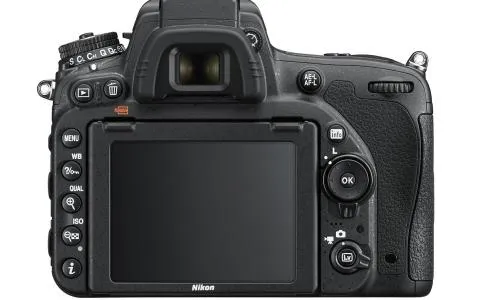In spite of people's warm feelings for mirrorless and the gazillion great photos shot with camera phones, I don't intend to give up my SLRs any time soon
The mirrorless hype is upon us... yes, I think it's a hype. A dictionary explains hype as “Exaggerated or extravagant claims made especially in advertising or promotional material”, which is just about where I find mirrorless cameras. And it's not as much the ads and the manufacturers that hype their products as it is the converts. Many of those who have changed from an SLR to some mirrorless system seem to feel like they have seen the light, come home, rid themselves of some disease and at long last found their Nirvana.
The lost souls
I'm sure these converts are very happy with their cameras. They are really excellent cameras and most of them deliver images that are easily as good as or even better than what comes out of many high end SLRs.
That's not my problem.
My problem is that many mirrorless-owners now consider those of us who shoot SLRs as some kind of dinosaurs, a dying race, or just poor, lost souls who haven't really woken up to the reality of electronic viewfinder cameras.
And my problem is also that I really haven't tried a mirrorless camera that I liked. At least not enough to want to change.
The decline of the Roman Empire
Sure, SLRs are on the decline. The manufacturers who make true SLRs with optical viewfinders and a flopping mirror have seen sales drop the latest years. Not just because of mirrorless but because there are so many cameras out there and a lot of the people who used to buy an SLR to get quality don't do that any more. There are so many alternatives ranging from phones over compacts to mirrorless and other high end systems.
My dad bought an SLR back when I was a kid, and he wanted good photos of the family. There were only few alternatives if you wanted quality. Consumer cameras were trash like Instamatics or cameras with very little control. Nowadays he can shoot with a very small compact digital or a phone and get the same results when it comes to image quality.
People wanting good image quality don't need to buy SLRs. People wanting flexibility do not have to buy SLRs. Systems with exchangeable lenses and image qualities that match large SLRs are numerous.
And SLRs are large and heavy, complex and expensive, which is not what most people are looking for.
Me, I love large and complex. Heavy is OK. Expensive comes with the territory.
Oddly enough many of my reasons for loving the SLR systems coincide with other people's reasons for disliking them.
I like the size
Big cameras give me confidence, and weight adds to the feeling. A D700 with a battery pack and a 70-200 f/2.8 weighs in at close to 3 kilos or 6 lbs., but I still love lugging it around. The feeling and reassuring steadiness this this combo adds to my feeling of it as a performing setup. And it is! It runs rings of fire around most other cameras I have handled – maybe not counting the Nikon D3 with a 300mm f/2.8 I fooled around with for a couple of days some years ago.
I like the comfortable feel of the large, sleek hunks of mechanics and electronics. The few times I have held an Olympus or Fuji mirrorless, I have felt that they were too small. I know that people love these systems for just that, and I'm sure that carrying around the lighter systems is less strain – but it would be hard for me to give up the form factor of the large SLRs.
I have shot a lot with my old D40 and the D5100, which aren't big by my standards, but they still fit better into my (absolutely normal size) hands than some of the more compact systems.
Do I like the price?
No, I sure don't. SLRs are expensive acquaintances. They cost a lot to buy, require expensive lenses, demand a lot from everything from tripods to flash systems.
But as I say: it's a part of the game, and I'd be paying just as much for a comparable mirrorless system. Those nice Fuji XT’s aren’t cheap and neither are the lenses. Small cameras with full size prices.
And I can use a lot of old lenses for my SLRs - and I do. OK, thanks to smaller sensors and shorter lens mount to sensor distances a lot of the mirrorless systems can use many kinds of old lenses, but I can use the original, brand name lenses plus a lot of third party offerings too.
I love the optical viewfinder
I have heard and read all the EVF praises and have to respect people who think that the electronic viewfinder is the answer to their prayers. But it's not the answer to any of mine. It's like gas versus induction on a stove. Induction might be both cleaner, more efficient and safer, but gas is simply much (like: MUCH!) better for me to cook on.
I feel the same about EVFs versus OVFs. The electronic viewfinder may have better information, might be able to show extremely dark subjects and have 100% coverage all the time, but I find the optical viewfinder on an SLR is much (like: MUCH!) better for shooting. I see the real world out there as it looks. No electronics to skew it. It's as fast as the speed of light (literally) and has everything I need to frame and shoot an image.
It might be a habit hard to let go or simply a crazy idea, but I will probably never own a “real” camera without an OVF.
Even on my Fuji X100 I use the OVF 99% of the time.
I love that slapping mirror
Now, this is personal taste and has no ground in anything rational. It's like preferring an analog wind-up watch over an electronic one or a tube amplifier over a transistor one.
I simply like the construction. The sound. The mechanics. The feeling.
Of course it's in the way and has to be brought out of the picture before exposure and that brings all kinds of challenges to camera constructors, who will of course prefer the less complex and less expensive mirrorless construction.
But I admire the engineers who designs these mechanisms and love the flopping mirror.
I love the power and speed
I know that the mirrorless cameras are catching up, but for real power and real speed – AF, frames per second, durability, all over performance – there's still some way to go for the mirrorless before they reach the level of a Nikon D4 or a Canon EOS 1.
Even in the megapixel race, the SLRs are still ahead with Nikon D8xx and their 36 megapixels – the upcoming 850 with a whopping 46 megapixels – not to mention Canon's 5DS and its unearthly 51 megapixels.
OK, Sony's Alpha 7 is a 42 megapixel mirrorless body, but weighing in at 625 grams it's still in the big league. Lighter than the big boys (900+ grams for both Nikon D8xx and Canon 5Ds), but not nearly as light as the lightweight mirrorless bodies like Olympus OM-5 (470 grams), Fuji XT-10 (380 grams).
I love the complexity
People seem to like simplicity and I often do too. I like simple designs and well thought out user interfaces, but I have to admit that I simply love the wealth of choices that SLRs offer.
Everything is configurable, everything is adaptable and I can adjust and tune the camera exactly to my liking. Which buttons does what, what AF system to use, exposure control, feedback level. It's all up to me to decide, and I love that.
Of course there are many of the more advanced mirrorless systems, which can do the same, but I don't consider it a disadvantage that the SLRs are complex, but rather the opposite.
So in conclusion: I’m staying with mys SLRs for now. A lot of time and money went into getting a good system and mastering it.









